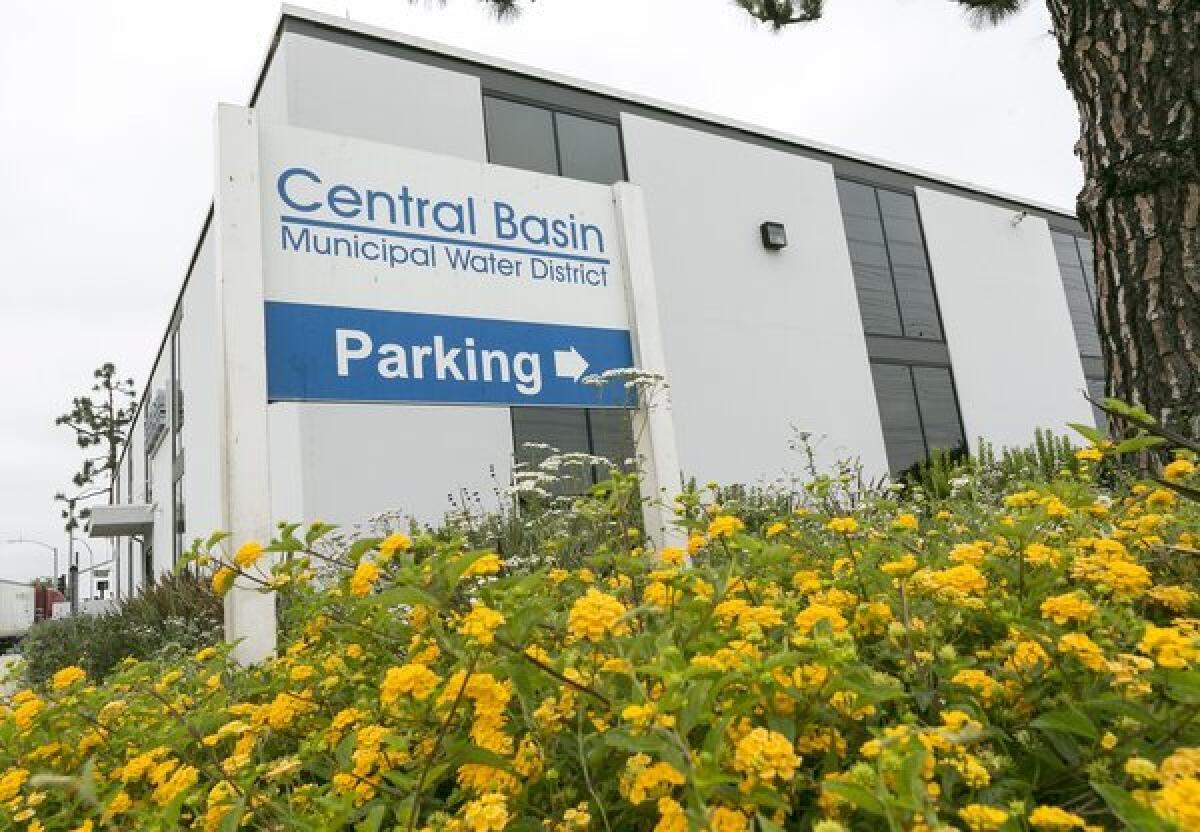Wanted: Water district watchdogs

In June, FBI agents raided the offices of Democratic state Sen. Ron Calderon of Montebello and the Latino Legislative Caucus, and word was soon out that they were interested in Calderon’s ties to the Central Basin Municipal Water District — leading many Californians to spontaneously utter, “the Central what?”
California has nearly 450 little-known but extremely important and powerful local water districts, public agencies that supply water — usually bought from wholesalers such as the Metropolitan Water District — to farms, businesses and residents. Over the years, many of these agencies have been caught up in scandals over bribes, fraud and lavish perks for directors and staff.
Many of these agencies have ethics committees that consist of several members of their own boards, meaning whistle-blowers have no one to turn to but insiders and perhaps the very same people about whom they want to lodge complaints.
Central Basin is a member agency of the Metropolitan Water District, which is currently considering a plan to create a more independent oversight office, not subject to political influence, to deal with ethics complaints and ferret out problems before district attorneys or federal agents need to become involved. The Met already has a good ethics program for dispensing advice and training, but it falls short of the mandates of a 14-year-old state law to have in place a program to keep complaints confidential and investigations free of interference.
The reform plan would bring the Met up to date, but it could also set the standard for smaller districts and govern member agencies such as the Central Basin. Those agencies will vote, on Monday and Tuesday, on whether to adopt the plan for the Met.
They should. Representatives of some member agencies have complained in the past about adding a layer of oversight or bureaucracy, but their true concern is more likely about adding more outside scrutiny. But a more independent approach to dealing with potential conflicts of interest is exactly what’s needed. These are public agencies spending ratepayer money for California’s most precious resource, and their top officials must be prepared to account for their actions to someone other than themselves. A more robust ethics program could catch problems when they are small, and would send a public message that water agencies can and do operate based on some principles other than self-dealing and cronyism.
More to Read
A cure for the common opinion
Get thought-provoking perspectives with our weekly newsletter.
You may occasionally receive promotional content from the Los Angeles Times.










